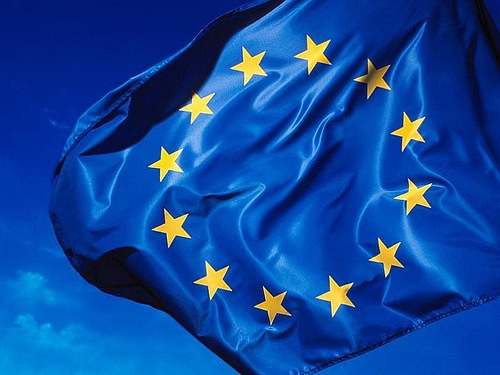Today's Europe
After coming to power of General de Gaulle (1958), the Franco-German entente manifested in meetings between Chancellor Konrad Adenauer and President Charles de Gaulle (July 1962). On July 8, 1962, François Marty, archbishop of Reims, celebrated a Mass of reconciliation in the cathedral of Reims, who had been mutilated during the First World War.
But long before the Franco-German reconciliation, the other three countries (Belgium, Netherlands and Grand Duchy of Luxembourg) had already prepared a draft Association, beginning in 1946. Benelux is the first association of countries on the Old Continent. It was then followed by the ECSC (1951), with the aim to create de facto solidarity, and through economic integration (EEC, 1957) following the failure of political integration (CED, 1954). The EEC expanded by successive accessions in 1973, 1981, 1986 and 1995.
The Wall (Berlin) fell in 1989, Europe is coming together. Germany was reunified October 3, 1990. Democracy extends to the east, reaching to the Ukraine where it is rooted in 2004.
Yugoslavia breaks up in the violence since 1991: war marked byethnic cleansing see compete for their independence and / or unitthe people who composed it, manipulated by politicians have become ex-communist nationalists (like Slobodan Milosevic),and sometimes competing interests of Western countries and Russia. Bosnia and Herzegovina and Kosovo are the most heavily affected.
In 1992, the Maastricht Treaty created the European Union,establishes European citizenship and decided to introduce asingle currency in most states on the horizon of the new millennium, after a long convergence policy (snake European Monetary System (EMS)).
The EU enlargement in 1995 (Austria, Sweden, Finland), and again in 2004 and 2007 in a great wave of expansion that almost doubles the number of Member States. Turkey in 2004 also began negotiations for entry into the European Union, frozen in December 2006.
Meanwhile, the reform of the Union, which sought to simplify itsoperation and move towards a more democratic form of governance faces the distrust of citizens about the direction of European decisions, deemed too political (sovereignism the UK, the Czech Republic, Denmark, commitment to liberalism andmilitary neutrality in Ireland) is not enough (demand for social Europe in France): the draft European Constitution was rejectedin 2005 by referendum in France and the Netherlands and the Lisbon Treaty, although less ambitious, is blocked by a country,the Czech Republic.
In this new millennium, the local ruler resume the magnitude and lead to tensions in the most fragile states: Serbia, Montenegrostands in 2006 and Kosovo declared its independence in 2008 in Belgium Flemish political parties become radicalized and 2007 elections provoke a serious political crisis, Spain, Italy and the United Kingdom regional parties (Basque Country, Catalonia,Padania, Scotland) had scores in the elections and majorconcessions on the part of power central.
Europe has created a digital library on its own histoire23. His heart European NAvigator (ENA) is produced by the Virtual Resource Centre for Knowledge about Europe


ليست هناك تعليقات:
اضافة تعليق